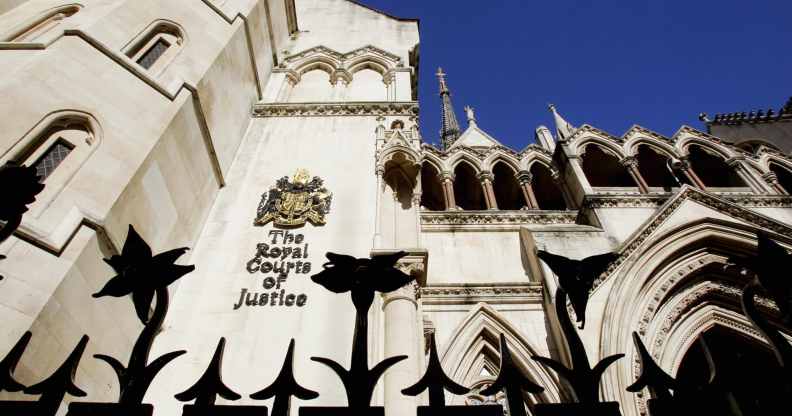Anti-trans pressure group spends thousands to remove the word ‘passport’ from census question on sex

Fair Play for Women argued at the Royal Courts of Justice that the ONS was “redefining sex” with the word “passports”. (Getty/ ODD ANDERSEN/ AFP)
The High Court has ordered the Office of National Statistics (ONS) to amend 2021 census guidance on the question “what is your sex?” after a challenge by the anti-trans pressure group Fair Play for Women.
Fair Play for Women, a “women’s rights” group set up to campaign against Gender Recognition Act reform, began crowdfunding last month to raise money for a legal challenge against the Office of National Statistics (ONS), which runs the census. The group raised more than £100,000.
This year, the once-a-decade UK census will, for the first time, collect information on LGBT+ demographics by asking brand-new voluntary questions about sexual orientation and gender identity.
A mandatory question on sex remains, as it has done for more than 200 years, requiring an answer of “male” or “female”. Guidance accompanying the sex question was to read: “If you are considering how to answer, use the sex recorded on one of your legal documents such as a birth certificate, gender recognition certificate, or passport.”
But Fair Play for Women claimed that by allowing census-takers to answer with their sex as it is displayed on their passport or other documents, the ONS had “decided it can redefine sex to include self-declared gender identity”. A High Court judge sided with the group Tuesday (8 March), ordering the ONS to remove “such as” and “passport” from its guidance.
Fair Play for Women argued that the sex listed on a person’s passport did not constitute “legal sex”, because to change the gender marker, a gender recognition certificate is not required. If a person does not have a gender recognition certificate or birth certificate listing their correct gender, they must provide “a letter from a doctor or medical consultant confirming their change of gender is likely to be permanent” to amend their passport gender marker.
The group claimed that allowing people to answer with the sex listed on their passport in the census could corrupt data on women in the UK, adding: “This is sex self-ID through the back door.”
On Tuesday, the case against ONS was heard at the Royal Courts of Justice.
In court, Jason Coppel QC, representing Fair Play for Women, argued that the guidance “conflates and confuses the concepts of sex and gender identity”, and that “small misclassifications of males as females can have large distorting effects on female stats”.
Defending, James Edie QC said that ONS uses “umbrella terms”, and that there is no “hermetically sealed concept” of what sex is, nor a “sex act” defining which state-issued documents accurately reflect a person’s sex.
2021 marks the first time that the census has been conducted predominantly online, and although the official “census day” is 21 March, the census was able to be filled out online from 22 February. According to Edie, around three million households have already completed the census.
But Justice Jonathan Swift eventually ruled that the guidance for the sex question in the census was “wrong”, and that it “does not match the question being asked”.
Swift agreed to Fair Play for Women’s request for interim relief, meaning ONS will have to amend the guidance, removing the words “such as” and “passport”, with immediate effect.
This will be followed by a judicial review next week to decide whether or not the guidance for the question was lawful.
An ONS spokesperson confirmed to PinkNews it would amend the guidance, saying: “We are continuing to ask a binary choice, female or male, sex question on the census. This approach is unchanged since 1801. There is a new voluntary question on gender identity for people aged 16 years and over later in the questionnaire.
“As with previous censuses, most people will not need help to answer the sex question. For those that do, we are providing guidance, as we do for all census questions. In line with the court’s order to grant interim relief we are amending this guidance to advise they use sex as recorded on a birth certificate or gender recognition certificate.”
Nancy Kelly, chief executive of Stonewall, said the charity had previously welcomed the ONS guidance as “clear and inclusive”.
“It’s not appropriate for us to comment on the ongoing court case, but we do feel it is important that the case doesn’t overshadow the fact that the 2021 census is a landmark moment for LGBT+ communities,” she added.
“The new voluntary questions on sexual orientation and trans status will finally allow the population of LGBT+ people in England and Wales to be accurately measured and it’s vital that LGBT+ communities feel confident, supported and able to complete the Census, including the voluntary questions. We count, so we should be counted.”

